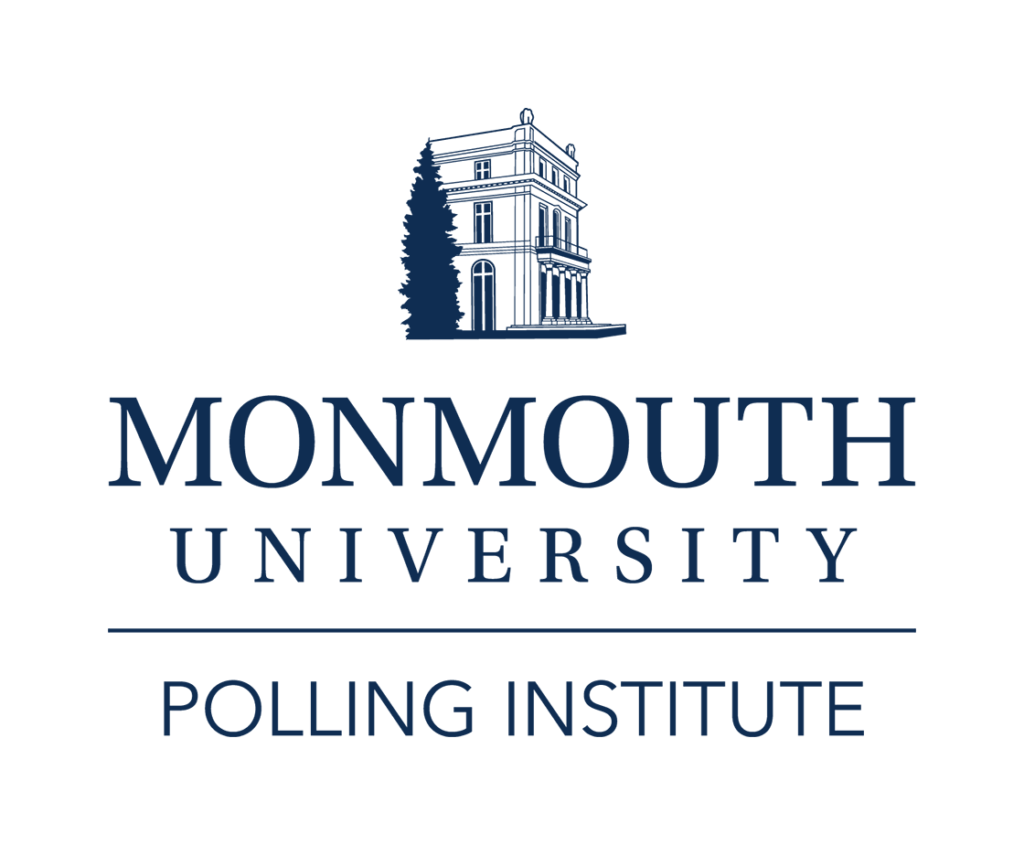On Monday, New Jersey and America commemorate the life of Martin Luther King, Jr. On Tuesday, we will watch Barack Obama take office as the nation’s first African-American president. The latest Monmouth University/Gannett New Jersey Poll finds that Garden State residents have high hopes for the Obama presidency, both in the overall direction he will take the country as well as how his leadership will affect race relations. Despite this promising start, many New Jerseyans still feel that we have a way to go before racial and ethnic discrimination disappear completely.
An overwhelming 75% of New Jersey residents approve of the way Barack Obama has handled his presidential transition. A similar 71% say they are optimistic about the policies he will pursue over the next year. Just 5% disapprove of his transition and only 16% are pessimistic about his policies. These New Jersey results are basically identical to the findings of recent national polls.
One the subject of race specifically, about 2-in-3 (65%) New Jerseyans believe that an Obama presidency will help race relations in this country. Only 4% say his leadership will hurt race relations. New Jersey appears to have slightly higher expectations than Americans in general. A recent ABC News Poll found that 58% nationally – 7 points lower than in New Jersey – think Obama’s presidency will help race relations.
In New Jersey, one of the most racially and ethnically diverse states in the country, the Obama candidacy has appeared to have also had some impact on residents’ views of integration as a societal goal. Fully 62% of New Jerseyans say that it is important for people of different races and ethnic groups to live, go to school and work closely together. This is up from 54% who felt this way in June 2007. Another 33% – mainly white, non-Hispanic residents – feel that a fully integrated society is not that important as long as everyone is treated fairly and has the same opportunities.
Currently, 38% of New Jerseyans believe that blacks and whites are generally treated equally in our society and another 29% think they will see equal treatment in their lifetimes. On the other hand, 25% believe that they will never see equal treatment of the races. However, this negative finding is down significantly from the 41% who felt the same in a 2004 poll.
Examining these results further reveals a disparity of opinion between the races. While the expectation of seeing full racial equality has increased among residents of all races, white residents (74%) are still much more likely than black residents (44%) to believe racial equality is obtainable.
“It appears that Obama’s election may have caused many white New Jerseyans to feel that race relations have taken a giant step forward. Black residents, though, are more likely to take a wait-and-see attitude as his presidency unfolds,” said Patrick Murray, director of the Monmouth University Polling Institute. “Still, many state residents, black and white alike, believe there is more work to be done to eliminate discrimination in New Jersey.”
Overall, 57% of New Jerseyans say that racial and ethnic discrimination remains a problem in New Jersey, including 21% who characterize it as a “big problem.” This is similar to the 55% of state residents in a 2007 poll who said that discrimination is a problem. However, this also marks a decline from earlier polls taken in 2001 (65%) and 1996 (67%) – during a time when racial profiling by police was in the news – when two-thirds of New Jersey residents said that discrimination was a problem.
The current poll also found little change over the past two years in the view that families of different races or ethnicities would be welcomed into Garden State neighborhoods. About half (49%) of New Jerseyans believe that their neighbors would openly welcome families of different backgrounds, 41% say that they would pay no attention to them, and just 3% believe such families would be actively discouraged from moving into their neighborhoods. These numbers are basically unchanged from polls conducted in 2007 and 1996.
The Monmouth University/Gannett New Jersey Poll was conducted by telephone with 500 New Jersey adults from January 12-14, 2009. This sample has a margin of error of ± 4.4 percent. The poll was conducted by the Monmouth University Polling Institute and originally published by the Gannett New Jersey newspaper group (Asbury Park Press, Courier-Post, Courier News, Daily Journal, Daily Record, and Home News Tribune).
DATA TABLES
The questions referred to in this release are as follows:
(* Some columns may not add to 100% due to rounding.)
1.In general, do you feel that blacks and whites are treated equally in our society, or not?
| TOTAL | PARTY ID | RACE | |||||
| Dem | Ind | Rep | White Non-Hispanic | Black, Hispanic, Other | Black Only | ||
| Yes | 38% | 31% | 41% | 44% | 42% | 33% | 14% |
| No | 53% | 60% | 53% | 44% | 49% | 60% | 74% |
| (VOL) Don’t know | 9% | 9% | 5% | 13% | 9% | 7% | 12% |
| Unwtd N | 500 | 201 | 165 | 103 | 363 | 121 | 67 |
| TREND: | Jan. 2009 | Jan. 2004* |
| Yes | 38% | 30% |
| No | 53% | 65% |
| (VOL) Don’t know | 9% | 5% |
| Unwtd N | 500 | 904 |
* Source: Eagleton-Rutgers Poll
2.Do you think you will see equal treatment for blacks and whites in your lifetime, or not?
|
TOTAL | PARTY ID |
RACE | |||||
|
Dem | Ind | Rep | White, Non-Hispanic | Black, Hispanic, Other |
Black | ||
| Already equal (from Q1) | 38% | 31% | 41% | 44% | 42% | 33% | 14% |
| Yes | 29% | 35% | 26% | 25% | 32% | 26% | 30% |
| No | 25% | 24% | 28% | 23% | 19% | 34% | 47% |
| (VOL) Don’t know | 8% | 10% | 5% | 8% | 7% | 8% | 9% |
| Unwtd N |
500 | 201 | 165 | 103 | 363 | 121 |
67 |
| TREND: |
January |
January |
| Already equal (from Q1) | 38% | 30% |
| Yes | 29% | 26% |
| No | 25% | 41% |
| (VOL) Don’t know | 8% | 4% |
| Unwtd N |
500 |
904 |
* Source: Eagleton-Rutgers Poll
3.Do you think that racial and ethnic discrimination in New Jersey is a problem, or not? [IF YES, ASK: Is it a big problem, somewhat of a problem, or a small problem?]
|
TOTAL | PARTY ID |
RACE | |||||
|
Dem | Ind | Rep | White, Non-Hispanic | Black, Hispanic, Other |
Black | ||
| Big problem | 21% | 26% | 17% | 16% | 14% | 32% | 42% |
| Somewhat of a problem | 27% | 29% | 24% | 27% | 25% | 30% | 38% |
| Small problem | 9% | 9% | 13% | 6% | 10% | 7% | 2% |
| Not a problem | 37% | 32% | 38% | 46% | 42% | 28% | 13% |
| (VOL) Don’t know | 6% | 4% | 7% | 5% | 8% | 2% | 5% |
| Unwtd N |
500 | 201 | 165 | 103 | 363 | 121 |
67 |
| TREND: |
January | June 2007** | April 2001* |
August |
| Big problem | 21% | 14% | 27% | 21% |
| Somewhat of a problem | 27% | 30% | 31% | 40% |
| Small problem | 9% | 11% | 7% | 6% |
| Not a problem | 37% | 39% | 29% | 28% |
| (VOL) Don’t know | 6% | 6% | 6% | 5% |
| Unwtd N |
500 | 1279 | 802 |
1203 |
* Source: Eagleton-Rutgers Poll
** Source: American Conference on Diversity NJ Poll
4.Which statement comes closer to the way you feel: It’s important that people of different races and ethnic groups live, go to school and work closely with each other – OR – It’s NOT important that people of different races and ethnic groups live, go to school and work closely with each other as long as everyone is treated fairly and has the same opportunities.
|
TOTAL | PARTY ID |
RACE | |||||
|
Dem | Ind | Rep | White, Non-Hispanic | Black, Hispanic, Other |
Black | ||
| It IS important | 62% | 71% | 60% | 47% | 58% | 70% | 90% |
| It IS NOT important | 33% | 26% | 36% | 44% | 38% | 24% | 9% |
| (VOL) Don’t know | 5% | 3% | 4% | 9% | 4% | 6% | 1% |
| Unwtd N |
500 | 201 | 165 | 103 | 363 | 121 |
67 |
| TREND: |
January | June 2007** | March 2004* | June 1999* |
August |
| It IS important | 62% | 54% | 50% | 51% | 43% |
| It IS NOT important | 33% | 43% | 46% | 48% | 54% |
| (VOL) Don’t know | 5% | 3% | 4% | 1% | 3% |
| Unwtd N |
500 | 1279 | 819 | 802 |
1203 |
* Source: Eagleton-Rutgers Poll
** Source: American Conference on Diversity NJ Poll
5.Let’s say that a family of a different race or ethnicity wanted to move into your neighborhood. Do you think people in your neighborhood would welcome the family, discourage them from moving in, or not pay any attention to them?
|
TOTAL | PARTY ID |
RACE | |||||
|
Dem | Ind | Rep | White, Non-Hispanic | Black, Hispanic, Other |
Black | ||
| Welcome them | 49% | 52% | 42% | 50% | 49% | 48% | 48% |
| Discourage them | 3% | 4% | 4% | 1% | 4% | 1% | 2% |
| Not pay attention | 41% | 37% | 49% | 40% | 39% | 46% | 41% |
| (VOL) Depends on which race/ethnicity | 2% | 2% | 1% | 2% | 1% | 2% | 4% |
| (VOL) Don’t know | 6% | 5% | 5% | 7% | 6% | 4% | 6% |
| Unwtd N |
500 | 201 | 165 | 103 | 363 | 121 |
67 |
| TREND: |
January | June 2007** |
August |
| Welcome them | 49% | 53% | 49% |
| Discourage them | 3% | 5% | 5% |
| Not pay attention | 41% | 37% | 40% |
| (VOL) Depends on which race/ethnicity | 2% |
n/a |
n/a |
| (VOL) Don’t know | 6% | 5% | 6% |
| Unwtd N |
500 | 1279 |
1203 |
** Source: American Conference on Diversity NJ Poll
6.Do you approve or disapprove of the way Barack Obama is handling his presidential transition?
|
TOTAL | PARTY ID |
RACE | |||||
|
Dem | Ind | Rep | White, Non-Hispanic | Black, Hispanic, Other |
Black | ||
| Approve | 75% | 91% | 70% | 58% | 72% | 80% | 87% |
| Disapprove | 5% | 2% | 6% | 13% | 7% | 3% | 1% |
| (VOL) Don’t know | 20% | 8% | 24% | 29% | 21% | 17% | 11% |
| Unwtd N |
500 | 201 | 165 | 103 | 363 | 121 |
67 |
7.Thinking about the next 12 months, would you say you feel optimistic or pessimistic about the policies Obama will pursue?
|
TOTAL | PARTY ID |
RACE | |||||
|
Dem | Ind | Rep | White, Non-Hispanic | Black, Hispanic, Other |
Black | ||
| Optimistic | 71% | 83% | 74% | 48% | 71% | 72% | 73% |
| Pessimistic | 16% | 11% | 14% | 33% | 17% | 14% | 17% |
| (VOL) Don’t know | 13% | 6% | 13% | 18% | 12% | 13% | 10% |
| Unwtd N |
500 | 201 | 165 | 103 | 363 | 121 |
67 |
8.Do you think Obama’s presidency will do more to help or more to hurt race relations in this country, or won’t it make much of a difference? [RESPONSE OPTIONS WERE ROTATED]
|
TOTAL | PARTY ID |
RACE | |||||
|
Dem | Ind | Rep | White, Non-Hispanic | Black, Hispanic, Other |
Black | ||
| Help | 65% | 76% | 65% | 49% | 62% | 72% | 81% |
| Hurt | 4% | 1% | 5% | 8% | 4% | 2% | 0% |
| No difference | 25% | 16% | 29% | 37% | 29% | 19% | 13% |
| (VOL) Don’t know | 6% | 7% | 1% | 7% | 6% | 6% | 6% |
| Unwtd N |
500 | 201 | 165 | 103 | 363 | 121 |
67 |
The Monmouth University/Gannett New Jersey Poll was conducted and analyzed by the Monmouth University Polling Institute research staff. The telephone interviews were collected by Braun Research on January 12-14, 2009 with a statewide random sample of 500 New Jersey adults. For results based on this sample, one can say with 95% confidence that the error attributable to sampling has a maximum margin of plus or minus 4.4 percentage points. Sampling error increases as the sample size decreases, so statements based on various population subgroups, such as separate figures reported by gender or party identification, are subject to more error than are statements based on the total sample. In addition to sampling error, one should bear in mind that question wording and practical difficulties in conducting surveys can introduce error or bias into the findings of opinion polls.
|
POLL DEMOGRAPHICS | |||
|
Total Sample (weighted) | |||
| 42% Dem | 48% Male | 30% 18-34 |
65% White |
| 34% Ind | 52% Female | 41% 35-54 |
12% Black |
| 24% Rep | 29% 55+ |
14% Hispanic | |
|
9% Asian/Other | |||
Click on pdf file link below for full methodology and results by key demographic groups.




